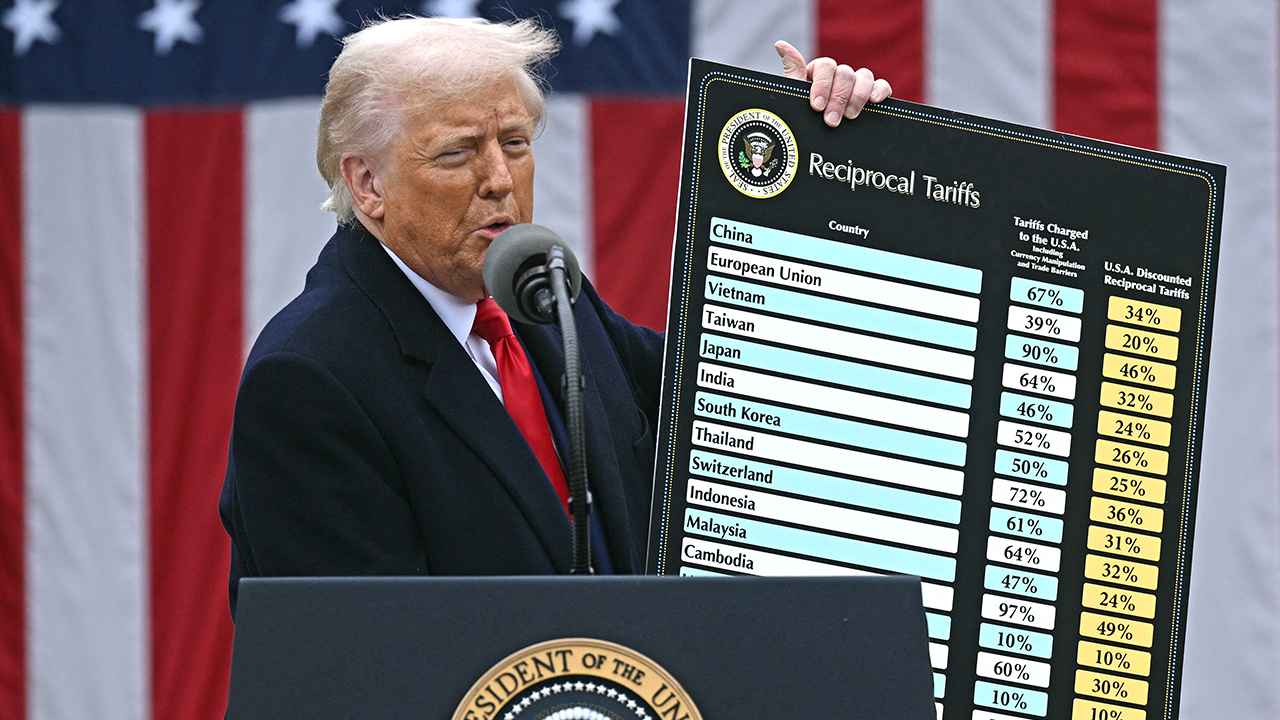Global Reactions to Trump's 'Liberation Day' Tariff Announcements

World leaders are responding with a mixture of disappointment, concern, and defensive strategies following U.S. President Donald Trump's recent announcement regarding tariffs on imports, dubbed "Liberation Day." On Wednesday, the president unveiled a new baseline tariff of 10% on imports, coupled with reciprocal tariffs based on the duty each country imposes on American goods. This initiative is part of Trump's broader economic strategy, which he claims will stimulate foreign investment in the United States and generate new jobs for American workers.
While many U.S. allies have expressed their frustration over this development, they seem reluctant to escalate tensions into outright trade wars. Instead, several leaders are advocating for dialogue and negotiations with the U.S. to establish new trade agreements that could mitigate the potential impact of these tariffs.
European Commission President Ursula von der Leyen did not hold back in her criticism, labeling the tariffs a "major blow to the world economy." In her official statement, she warned that there would be "countermeasures" taken, although she did not detail what these would encompass or when they might be implemented. This sentiment reflects a growing apprehension among European leaders regarding the potential fallout from such unilateral trade actions.
In a broader context, China’s Foreign Ministry echoed these concerns, stating that "there are no winners in trade wars and tariff wars," a sentiment captured by the Associated Press (AP). Additionally, sources from Reuters indicate that Beijing is preparing to introduce its own countermeasures in response to the U.S. tariffs. Trump has already taken a hard stance against China, which saw a 20% tariff imposed earlier this year. Now, with the new tariffs, China is facing a staggering 34% reciprocal tariff on top of the 10% baseline.
French leaders have also weighed in, with Prime Minister Élisabeth Borne urging the U.S. to adopt a more "cooperative" approach rather than a "confrontational" one, particularly in light of these new tariffs.
Japanese Prime Minister Shigeru Ishiba expressed that the tariffs will create significant repercussions for U.S.-Japan relations as well as the global economy. He emphasized the Japanese government's commitment to "decisively protect people’s lives, jobs, and industries" from the adverse effects of these policies.
Australia’s Prime Minister Anthony Albanese, whose country currently faces one of the lowest reciprocal tariffs at 10%, indicated his government would engage in negotiations with Washington to eliminate these tariffs. Albanese stated, "We will not join a race to the bottom that leads to higher prices and slower growth," highlighting a call for a balanced approach to trade.
Canada and Mexico have been granted exemptions from these reciprocal tariffs for the time being; however, they are still facing a hefty 25% tariff on goods. Additionally, Canada has been subjected to a 10% tariff on energy exports. Canadian Prime Minister Mark Carney has pledged to "fight these tariffs with countermeasures," while Mexican President Claudia Sheinbaum announced that her administration would reveal a "comprehensive program" on Thursday to address the tariffs.
In the United Kingdom, Prime Minister Keir Starmer opted for a more measured response, refraining from criticizing Trump directly, stating that the U.S. president is acting within "his mandate." However, Starmer did emphasize that "nothing is off the table," assuring the public that his government is diligently working to secure an "economic prosperity deal" with the United States.
In a surprising twist, Israeli Prime Minister Benjamin Netanyahu declared on Tuesday that Israel would lift all tariffs on U.S. goods in a preemptive measure. Despite this gesture of goodwill, Trump still announced a 17% reciprocal tariff on Israeli imports. Israeli Finance Minister Bezalel Smotrich remarked that his office is currently assessing the potential implications for the economy, stating plans to meet with the Finance Ministry to discuss possible responses to these new tariffs.



















